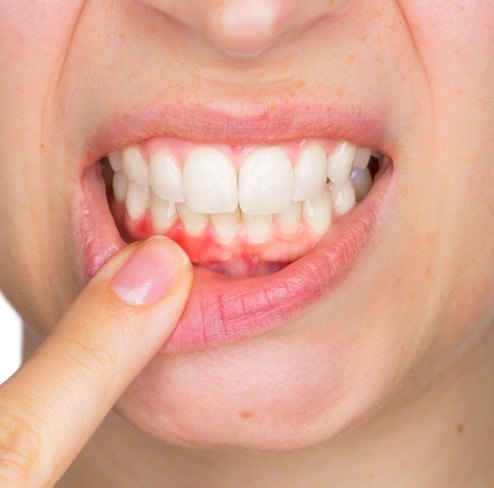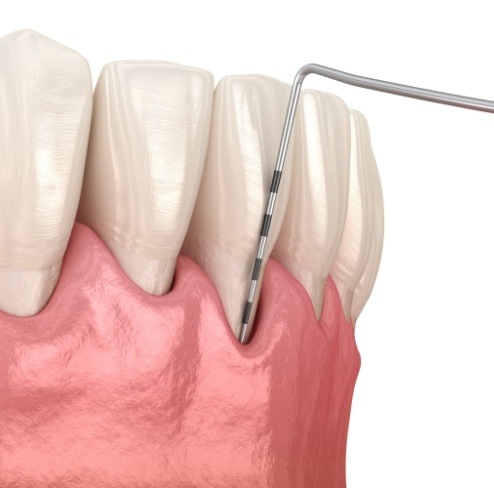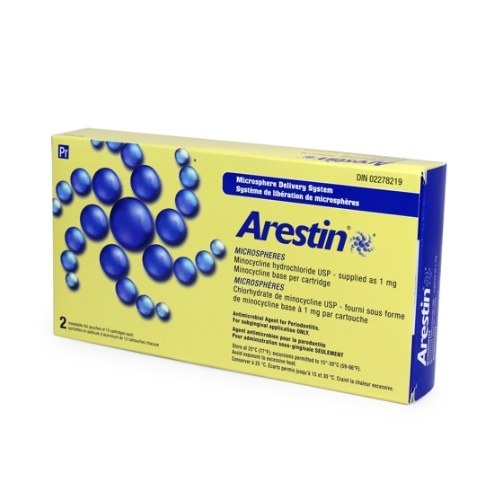Gum Disease Treatment – Port Charlotte, FL
Taking Care of Bleeding,
Swollen Gums

While cavities are far more prevalent than gum disease, the latter is still very common, affecting roughly half of adults over the age of 30. When gum disease is ignored, it can lead to tooth loss, contribute to heart disease and other systemic health issues, and generally decrease your quality of life. Dr. Villescas can catch gum disease early during a regular checkup, and he can offer different treatments depending on how advanced it is. Call Caring Way Dentistry of Port Charlotte today for an appointment to receive gum disease treatment in Port Charlotte, FL.
Why Choose Caring Way Dentistry of Port Charlotte for Gum Disease Treatment?
- Arestin Antibiotic Therapy Available
- Experienced and Caring Dentist
- Timely and Enthusiastic Dental Care
What is Gum Disease?

Gum disease is an infection resulting in inflammation and bleeding of the gingival tissue (gums). It is caused by a build-up of plaque, a sticky form of bacteria forming on the teeth. If the plaque is not removed by flossing, brushing, and regular professional cleanings at our Port Charlotte dental office, it will continue to build up and create bacteria that will cause gum disease.
Gum disease has two stages: gingivitis and periodontitis.
Gingivitis is a form of gum disease that is localized to the tissue and is reversible. The most common symptoms of gingivitis are gum inflammation and bleeding.
Periodontitis is an advanced form of gum disease. It presents with the loss of attachment of the bone, periodontal ligament, and gum tissue. Periodontitis is not reversible but maintainable with dental care. Many patients have periodontitis and are unaware of it because there may not be any signs noticeable to them. Patients who show symptoms present with red or inflamed gum tissue, gum recession, bone loss, and tooth mobility.
What Causes Gum Disease?

Several factors can increase the likelihood that gum disease will develop, including:
- Genetic predisposition
- Poor home oral hygiene
- Smoking or using chewing tobacco
- Diabetes
- Certain types of medication such as steroids, anti-epilepsy drugs, cancer therapy drugs, calcium channel blockers, and oral contraceptives
- Bridges that no longer fit properly
- Crooked teeth
- Old fillings
- Pregnancy
How is Gum Disease Diagnosed?

Our dentist uses digital radiography and panoramic X-rays to measure bone levels. A complete periodontal charting, a six-point measurement around each tooth, is done at every hygiene visit.
How Can I Prevent Gum Disease?

They say that an ounce of prevention is worth a pound of cure, which applies to gum disease in particular. It’s easy to prevent gum disease by practicing good oral hygiene and visiting our Port Charlotte dental office for cleanings and exams. If you are at risk for developing gum disease, we may suggest increasing professional cleanings to keep bacteria levels lower and keep your gum health stable. Looking for an emergency dentist in Port Charlotte? Meet our emergency dentist in Port Charlotte now!
Scaling & Root Planing

To treat advanced gum disease, we need to remove the plaque and tartar contributing to the inflammation. This is done through a process called scaling; we’ll focus on the area around your gums, particularly in the pockets that have formed between your teeth and the soft tissues in your mouth. Then, once the scaling portion is done, we’ll move on to root planing. By smoothing out the roots of the teeth, we can make it more difficult for bacteria to build up on them later.
Arestin Antibiotic Therapy

Since gum disease is caused by bacteria, it’s only natural that antibiotics are often involved in treating it. We’ll most likely prescribe antibiotic therapy along with scaling and root planing; that way we can continue to fight any bacteria that’s still in your mouth after the initial cleaning. Our dental office uses Arestin, an antibiotic that is applied to the pockets that have formed between the teeth and gums so that the medication can be released gradually where it’s needed the most.
